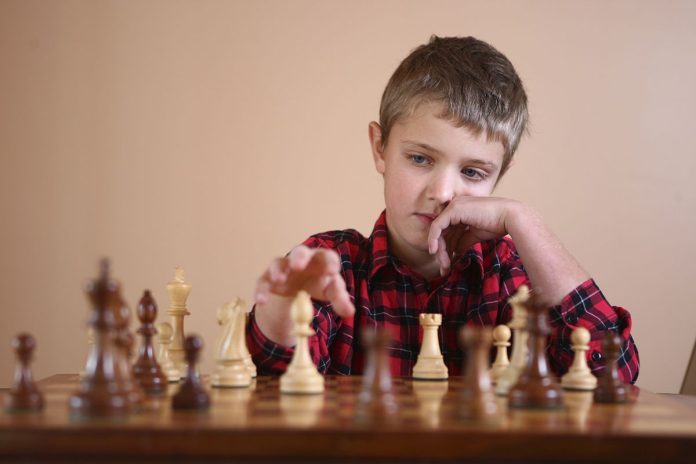Chess is much more than a game of strategy—it’s a powerful tool for fostering social skills in children. While it’s often seen as a solitary game, chess offers significant opportunities for social interaction, collaboration, and communication. Whether through chess clubs, tournaments, or simply playing with friends, children who learn chess develop important social abilities that help them navigate both competitive and cooperative environments.
Building Communication Skills
One of the most immediate social benefits of chess is the opportunity to improve communication skills. Although chess may not require verbal communication during gameplay, the conversations before and after a game—analyzing moves, discussing strategies, and reflecting on mistakes—allow children to express themselves clearly and articulately. For children who may struggle with communication, chess provides a structured environment in which they can practice explaining their thoughts and reasoning.
Additionally, teaching chess to peers or younger children is another way that learning the game fosters communication. As children explain the rules and strategies of chess to others, they improve their ability to convey complex ideas in a simple, understandable way.
Encouraging Sportsmanship and Respect
Chess teaches children about the importance of sportsmanship. The structured nature of the game, which often begins and ends with a handshake, promotes respect between players regardless of the outcome. Children quickly learn that winning and losing are both part of the experience, and they gain a healthy perspective on competition. Whether they are celebrating a victory or learning from a loss, chess players develop the ability to handle both outcomes with grace.
In addition to sportsmanship, chess encourages respect for rules and opponents. Following the strict guidelines of the game and acknowledging the skill of the other player help children understand the importance of fairness and integrity in competition. These lessons in respect and fairness extend beyond chess and influence how children interact in other competitive and cooperative settings, such as sports, academics, and teamwork.
Fostering Peer Relationships and Collaboration
Chess can also be a highly social activity when played in group settings like school clubs, community centers, or tournaments. These environments encourage children to interact with peers who share their interest in chess, leading to the development of friendships and camaraderie. The shared goal of improving their chess skills and learning from one another fosters a sense of belonging and community.
In some cases, chess can even promote collaboration. In team tournaments or group training sessions, children work together to solve chess puzzles, share strategies, and analyze games. This type of collaborative learning helps children understand the value of teamwork and collective problem-solving, skills that are valuable both in school and in life.
Developing Patience and Emotional Control
Chess requires players to practice patience and self-discipline, especially during long matches or challenging situations. For children, learning to control their emotions, especially frustration or excitement, is a critical aspect of social development. Chess teaches children to remain calm and composed under pressure, and this emotional regulation is a key part of developing strong interpersonal relationships.
Handling setbacks in chess, such as losing a valuable piece or even a game, teaches children to deal with disappointments gracefully. This ability to manage emotions effectively, without lashing out or becoming discouraged, is essential for social success, particularly in competitive environments where cooperation and respect are equally important.
Chess as a Gateway to Cultural Exchange
Chess has a universal appeal that transcends cultures, languages, and backgrounds. As children learn chess, they join a global community of players who share the same passion for the game. International chess tournaments and online chess platforms provide opportunities for cultural exchange, allowing children to interact with peers from different countries and backgrounds.
This exposure to different cultures through chess fosters a sense of inclusivity and open-mindedness. Children who play chess in international or multicultural settings learn to appreciate diversity, recognizing that despite differences, they share common ground in their love for the game. These lessons in cultural exchange and inclusivity help children grow into more empathetic and understanding individuals.
Conclusion
Chess is a unique game that offers a wide range of social benefits for children. Through communication, sportsmanship, collaboration, emotional control, and cultural exchange, chess helps children develop the skills they need to succeed in social environments. Beyond the intellectual challenges of the game, learning chess encourages the development of strong interpersonal skills that will benefit children in school, friendships, and future professional settings. Whether they play casually with friends or in more structured environments like clubs and tournaments, children who learn chess gain much more than just strategic thinking—they gain valuable social abilities that will serve them well throughout their lives.








